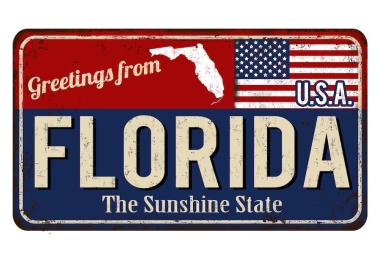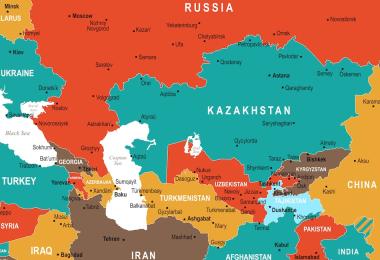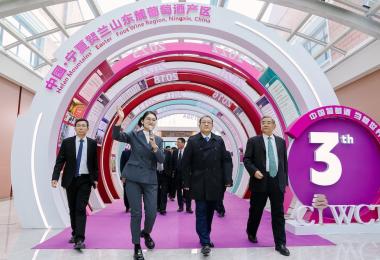They say good things come in small packages and that is certainly the case in Taiwan’s capital Taipei. With a population of about 2.6m, Taipei’s small size means fringe wines and movements can have a big impact.
Euromonitor expects Taiwan’s wine consumption to increase to more than 25m litres (1.06 litres per head) by 2021. Wines from France dominate the market (46.7% market share by value in 2016), but insiders say France’s share of total consumption is declining. Drinkers in search of new frontiers are discovering Spain, Italy, the US, Chile and Australia, while young drinkers have catapulted enthusiastically into the natural wine movement, which shuns geographical borders.
What’s hot?
Taipei is still an important market for Bordeaux, with collectors prizing first growths from the prestige châteaux, but it is no longer the only game in town. Burgundy has trended strongly in the past decade. “Bordeaux is down while Burgundy is staying hot,” observes David Pan, president of import company Domaine Wine Cellars. “Grower Champagne is exploding in a good way, as drinkers move away from big houses to smaller growers in search of authenticity and traceability.”
Taiwan Wine Academy’s director of international programs, Robert Tom Curry, agrees. “Sparkling wine is growing in popularity and depth of engagement is improving dramatically. I hear very often about the popularity of RM [Récoltant-Manipulant] Champagne and that should tell us what’s happening generally,” he says.
One trend waiting in the wings is rosé. “I don’t understand why rosé isn’t booming here as it is in other parts of the world,” says Curry. “So many street-food dishes pair beautifully with rosé, and it’s cheap too! When it finally catches on, everyone will be amazed.” He notes that Taipei’s on-trade is slower to respond to global shifts due to less reliance on expats and tourists for sales and exposure.
Local tastes continue to diversify and adventurous new drinkers are riding the wave of natural wines that have recently arrived on Taipei’s wine scene. Writer Yusen Lin believes natural wines encourage curiosity. “Natural wine is a movement – there are no borders, no limitations,” he says. “Although a niche in Taipei, its impact has been huge. Natural wine has brought together a community of like-minded people in as little as three years.”
Natural wine fair Buvons Nature, which began in 2016, will host its fourth edition in December 2019 and the natural wine movement has led to the rise of wine bars, previously unknown in Taipei’s wine culture. Poet Wine Cellar, Can Nature, Ok Goût Bar, Dancing Elephant and Bar Qvevri are all natural wine-friendly bars.
Sommeliers and education
Wine service has been hampered by a strong BYOB (bring your own bottle) culture. Some diners still arrange to have purchases from importers delivered directly to a restaurant ready for that night’s dinner reservation. While there are still echoes of this, BYOB is increasingly under attack with corkage charges becoming more common. “Of course, we still hear of wealthy clients demanding free wine services, but I think the trend is toward accepting wines paired with the menu,” says Curry.
Today, wine lists are more extensive and there is demand for wine by the glass (WBTG) programmes and the sommeliers that support them. The arrival of the Michelin Guide Taipei provided a much-needed boost to the city’s wine service. Now, hotels and restaurants encourage sommeliers who are in turn empowered to influence wine selections. The introduction of Coravin systems has also eased the way for WBTG sales.
“Today, there are more sommeliers and the profession has become important. Little by little, sommeliers are starting to influence importers. They focus on selling interesting wines because classic wine is expensive and difficult to sell,” says Lin.
As a category, wine still lags behind beer and whiskey on dining tables, but people are becoming open to drinking wine with their meals. “People are more willing to try wines sold on-trade and we now have good wine bars with very large selections available by the glass,” Curry says. Thomas (Hsin-Wei) Ho, one of Taipei’s most distinguished sommeliers, highlights Bistro Le Jardin as having one of the city’s most interesting wine lists.
Even modest programmes now have increasingly qualified professionals making wine decisions, but only large wine programmes can justify employing a designated sommelier. Mandarin Oriental Taipei and Villa 32 both have excellent reputations for wine service from award-winning sommeliers. Grand Victoria Hotel’s No. 168 Prime Steakhouse, The Regent Taipei, Landis Hotel’s Paris 1930, and Le Moût Restaurant are also renowned for their service, selection and talented somms.
The Taiwan Wine Academy is betting on the ongoing growth of Taipei’s sommelier community. “For years we have been promoting wine education in Taiwan’s hospitality colleges and universities,” says Curry. “Our new sommelier programme [launched in July], Taiwan Academy of Professional Sommeliers, opens the way for aspiring sommeliers to prepare locally for international examinations offered by organisations such as CMS, ASI and others.”
Local culture prizes erudition, but wine professionals aren’t the only group demanding education. The Academy passed 20,000 alumni this year, including more than 2,000 WSET Level 2 graduates.
Importers and retail
Taiwan is a challenging market for importers, says Pan. “Anyone with an alcohol licence can play at any and all parts of the value chain – importation, distribution, retail, bar, restaurant.” Licence costs and taxes are low and therefore no barrier to entry, he adds. That leaves the value chain oversaturated, which makes price the key differentiator. “Things here can get messy quick with pricing,” Pan laments.
This fragmentation can be irritating, Curry admits, but it also creates the possibility of stumbling onto unexpected wines on-trade. “There are no particular restrictions in Taiwan – an importer can sell wine in its own bar and a restaurant can import its wine directly from wineries.”
Pan estimates that 30 to 40 companies import serious volumes in Taipei but says there are many small importers. “A lot of people make their passion their business, which only works for a few.” Those who do make it work are usually on the more esoteric side. “These folks are good for the overall maturation of the market; they expand it and introduce new things, such as natural wines and unusual countries.”
Taiwan is still a niche market which means wine rarely forms part of the weekly grocery shopping, so supermarket sales are slim. Instead, non-supermarket retail and direct sales are the preferred channels. Be sure to wear your walking boots if you plan to go knocking as there are no fewer than 200 retailers, very few of which form a chain. Most outlets are located in backstreets and double as multi-function sites with bars, tables, kitchens and storage. To survive in the specialist end of the market, Taipei retailers offer more than just a place to buy wine; they deliver an experience. Pan’s Domaine Wine Cellars is a good example of a retail establishment that doubles as a sort of unofficial VIP hangout, where customers are encouraged to linger. After work, friends meet at tables for food and wine. Bottles can be bought on-premises or plucked from a collection stored in perfect conditions in an adjacent room.
This model is repeated elsewhere in Taipei, with varying degrees of weight given to retail, dining and bar space. Portuguese wine store Tuga is “a wine shop that serves food, not a restaurant that serves wine,” says its owner.
“Sticker prices on the shelves surrounding the tables are the same as prices for wine poured with dinner,” says Curry.
E-commerce in Taiwan is hampered by archaic laws that ban online alcohol sales due to issues of age verification. “This purported protection of minors is definitely slowing the market’s shift toward online services, though huge investment in online programs is betting that the laws will change soon,” Curry says hopefully.
Online marketing is allowed, however, and the widespread adoption of social media has had positive unintended consequences, supporting a growing a community of wine tasting and buying groups. Some companies also use their websites to drive direct sales. “On the websites you can have shopping carts, but when the consumer goes to check out an e-mail is sent to a sales rep who calls the customer on the phone to confirm the order and complete the transaction, theoretically verifying age in the process,” Pan explains.
Taipei’s purchasing and drinking habits are changing and new drinkers are heading to no fixed address. From ultra-premium French to the broad appeal of natural, the influence of every wine style and movement is amplified in this enlightened, erudite wine market.
This report on Taipei is based on Debra Meiburg MW’s ‘Guide to the Taiwan Wine Trade,’ plus interviews with local experts.








